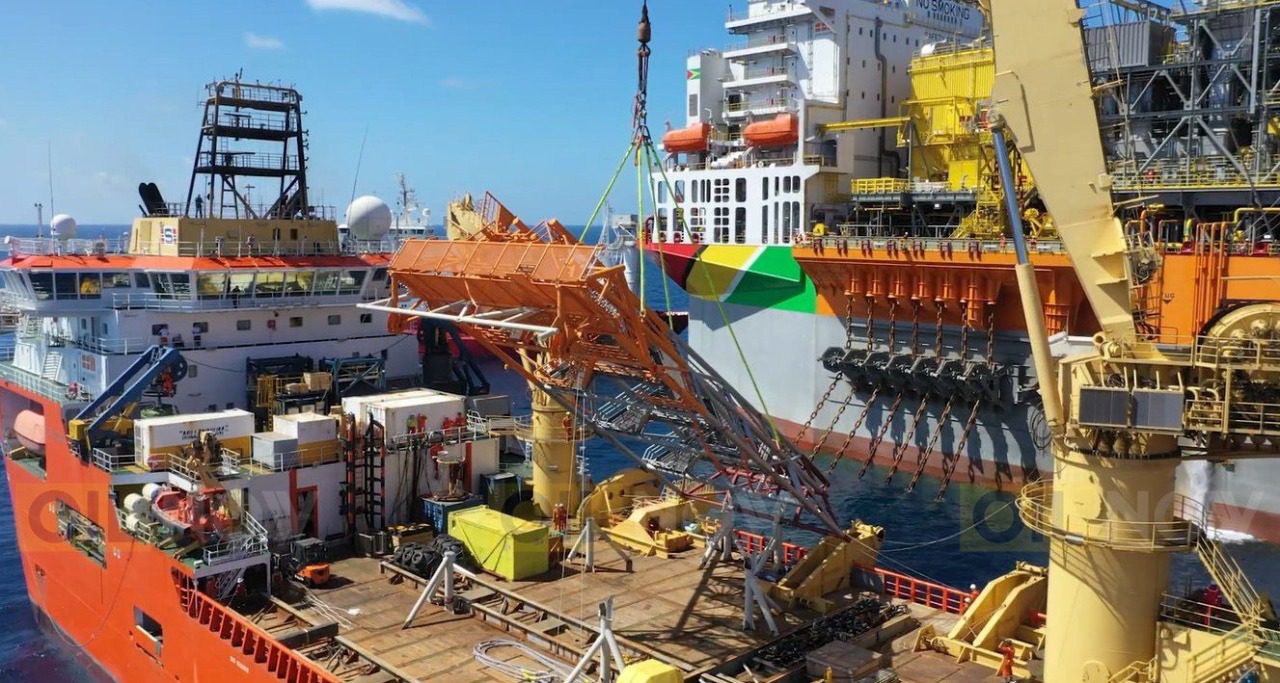ExxonMobil Guyana has asked Guyana’s Environmental Protection Agency (EPA) to commence an authorisation process for its sixth project offshore the South American country; the Whiptail development.
The Whiptail- 1 discovery was announced in July 2021. The Whiptail-1 well encountered 246 feet (75 meters) of net pay in high quality oil bearing sandstone reservoirs and was drilled in 5,889 feet (1,795 metres) of water. A discovery was also announced at Whiptail- 2 in July 2021. The Whiptail-2 well encountered 167 feet (51 metres) of net pay in high quality oil bearing sandstone reservoirs. Whiptail-2 was drilled in 6,217 feet (1,895 metres) of water.
In a notice, the EPA said the proposed Whiptail project will include well drillings and completions, mobilisation and installation of subsea equipment, umbilicals, risers and flowlines (SURF), installation of a floating production, storage and offloading (FPSO) facility, production operations, and decommissioning.
The project would be undertaken largely in the marine offshore environment of the Stabroek Block and would require land-based activities for support activities at marine shorebases.
As a result of the possible effects the project could have on marine water quality, air quality, marine fauna, socio-economic resources, and other factors, the EPA will require an Environmental Impact Assessment (EÏA).
It said the potential impacts of the project on the physical, biological, and socioeconomic environment may be significant and long-term, given the type, scale and duration of the proposed activity. The regulator also noted that the project is in relatively close proximity to other development projects, which increases the potential for cumulative impacts. Finally, the EPA reasoned that the associated risks attached to unplanned events of petroleum production activities may be significant.
In line with statutory obligations, the public has been given 28 days to make submissions, with questions and matters which should be considered in the EIA.
The Stabroek Block co-venturers expect approval for Whiptail in 2023. Exxon is likely to submit a field development plan to the Ministry of Natural Resources (FDP) in the coming months.
The EPA is also reviewing the application for the fifth project, Uaru-Mako-Snoek.
With an application submitted for Whiptail, there is now a clear line of sight for the achievement of Exxon’s 2027 goal of six projects offshore Guyana in the prolific Stabroek Block. Beyond this goal of producing 1.2 million barrels per day (bpd) by 2025, Hess has said that the Fangtooth discovery is currently the co-venturers’ preference for the seventh project.
Authorities in Guyana have encouraged international oil companies (IOCs) to maximise petroleum exploration and production activities offshore. The revenues from these operations will provide a realistic pathway for Guyana to adapt and mitigate against the changing climate. Due to Guyana’s tremendous forest cover, studies have shown that even with a major expansion of exploration and production activities in the Stabroek Block, the country would remain carbon negative.
There is potential to place 10 FPSOs altogether at Stabroek. ExxonMobil has a 45% operating stake in the Stabroek Block, while Hess has 30% and CNOOC has 25%.




